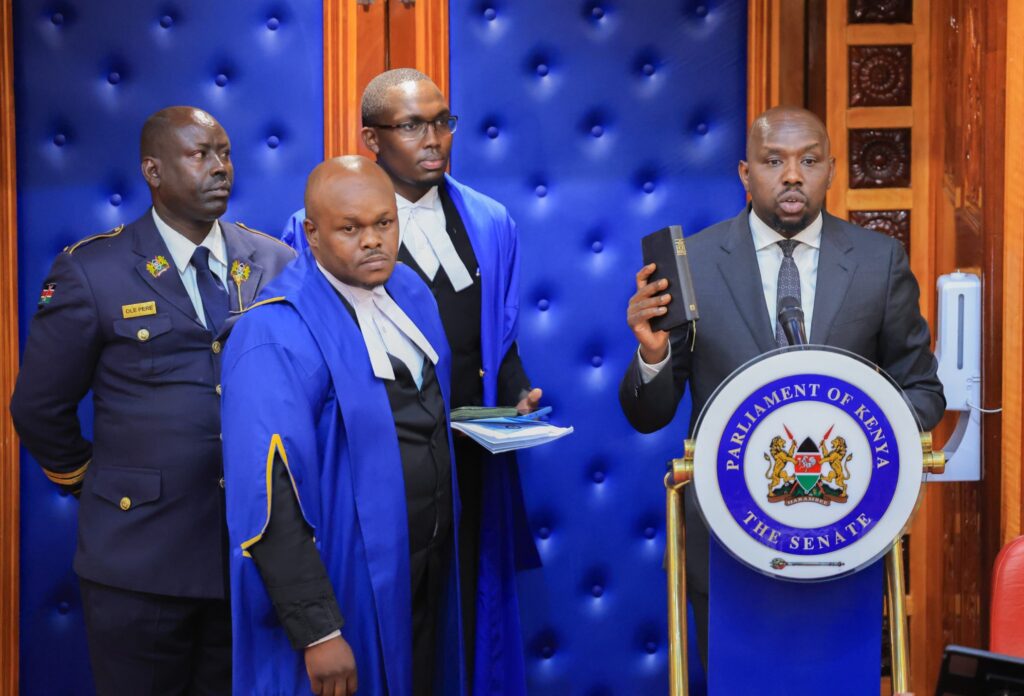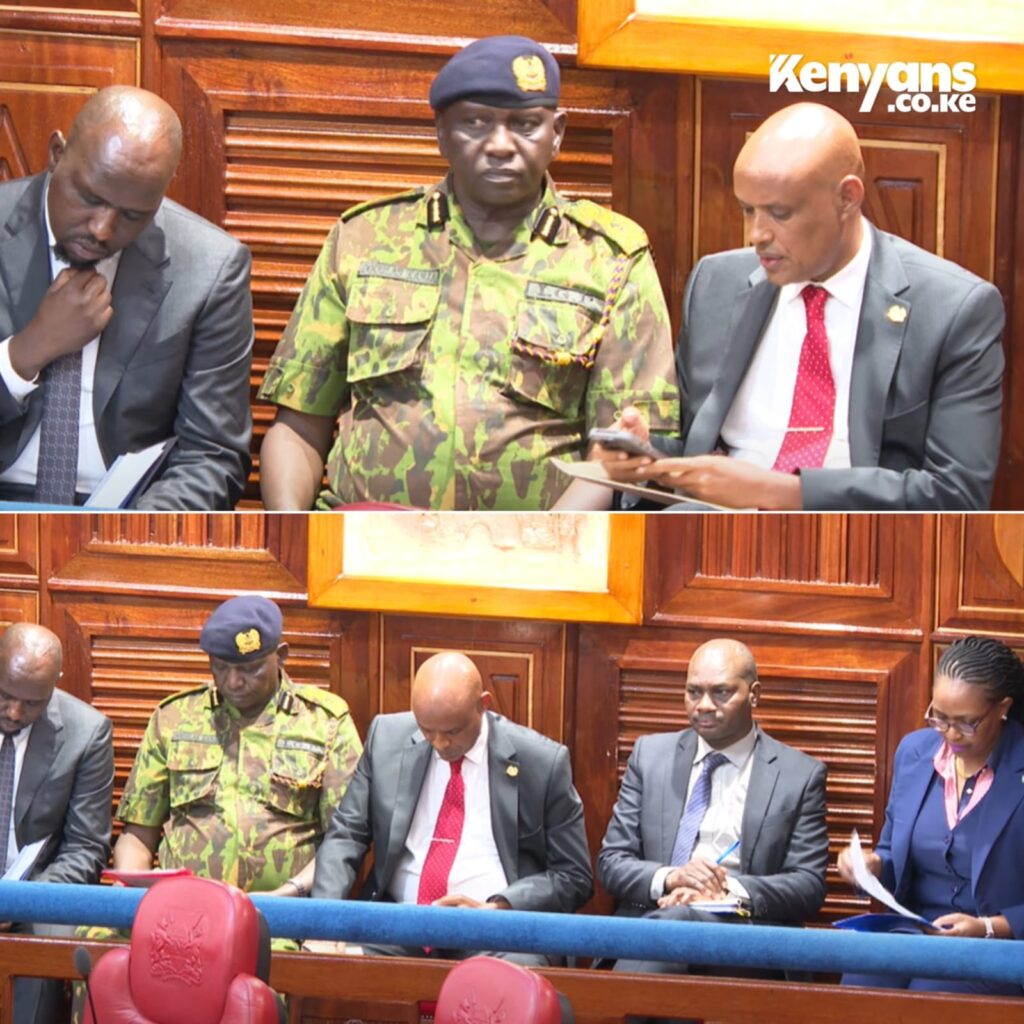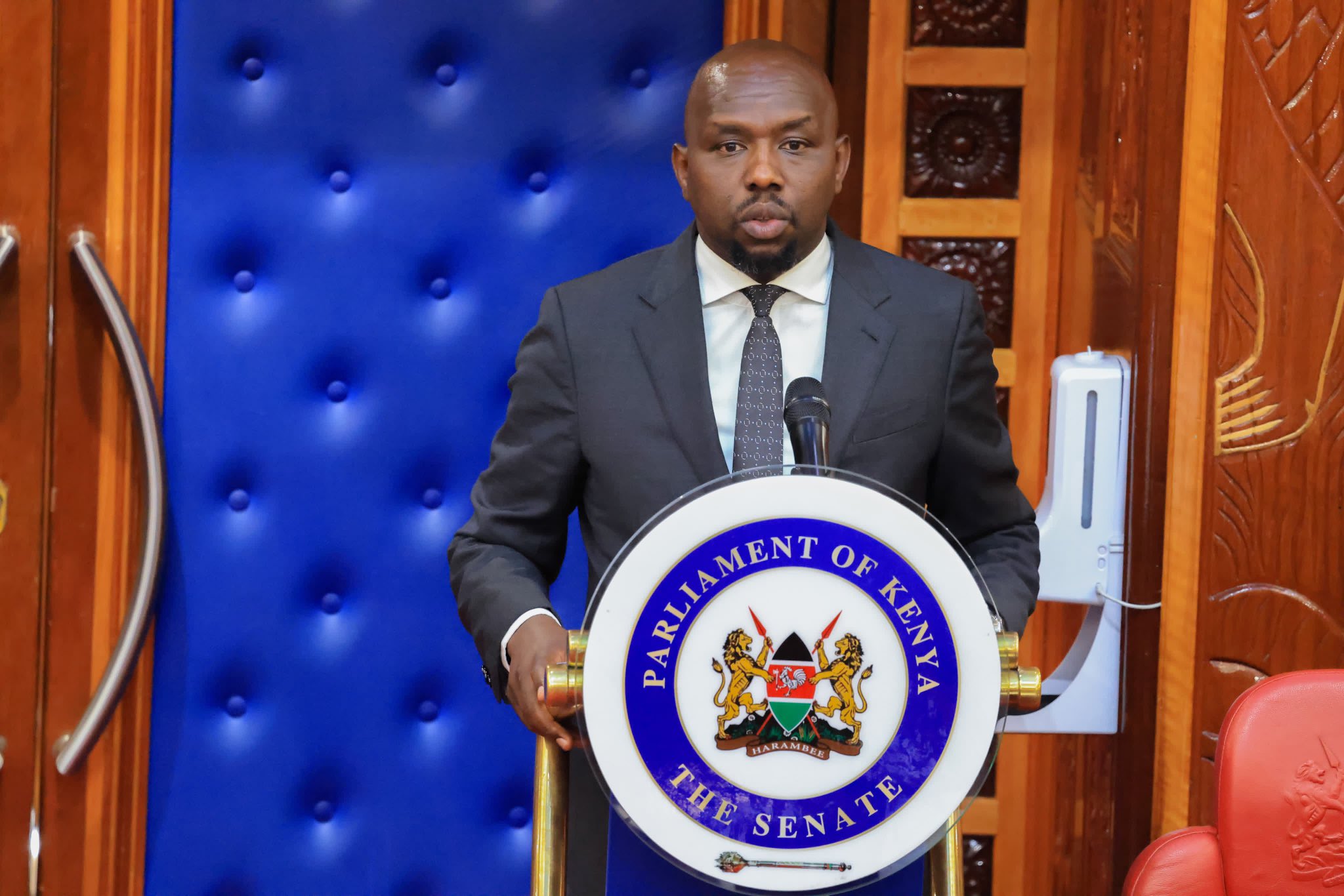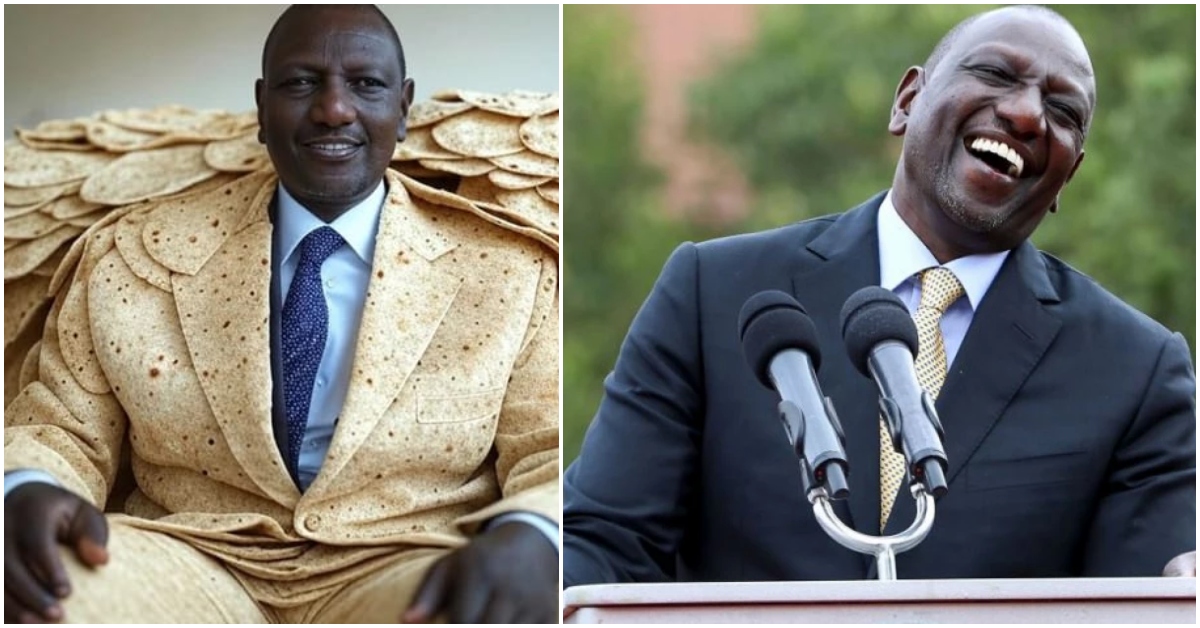Albert Ojwang and CS Murkomen took center stage in Kenya’s national discourse on Wednesday, June 11, 2025, when the Interior Cabinet Secretary appeared before the Senate plenary to respond to public outrage and legislative concern over Ojwang’s brutal death while in police custody at Nairobi’s Central Police Station. terming the act an embarrassment to the National Police Service.
With a visible weight of grief and responsibility, CS Murkomen addressed the Senate, saying he received the news of Ojwang’s death in “shocking circumstances of disbelief.” It was not merely an incident, he implied it was a deep rupture in the moral fabric of a nation that has pledged to protect its own.

“It is regrettable that such an act happens in our country, particularly in the hands of the police officers. One life lost in circumstances like Ojwang’s is worth many,” he stated, his voice carrying both sorrow and urgency.
The CS did not mince words. He called the death of Ojwang an embarrassment to the National Police Service (NPS), a painful admission, but a necessary one in a moment of national reckoning. He acknowledged the public’s growing frustration with systemic police brutality and affirmed that the government is not sitting idly by.
“A few years ago, with the enactment of the new Constitution and establishment of institutional accountability, we now hold police accountable, according to the new mechanism.”
In front of the Senate and the eyes of a grieving nation, CS Murkomen reassured Kenyans that accountability will not be sacrificed to silence or delay. The machinery of justice, he promised, is in motion and this time, it must not fail.
“I did not order the murder of Mr Albert Ojwang. The Constitution guarantees the independence of the National Police Service. I cannot direct the Inspector General of National Police Service.”
Even in distancing himself from operational control, CS Murkomen emphasized moral responsibility. His presence in the Senate was not a formality, it was a gesture of commitment to every Kenyan who fears that their life may not be protected, even under the state’s watch.
Reflecting on past instances where justice prevailed, he drew parallels to earlier cases of police abuse:
“Just like in the case of 2013, Mr Martin Koome, who was killed in the same manner as Ojwang, the suspects were brought to account. Wakili Kimani’s killers in 2016 were also brought to account.”

With these words, he positioned Ojwang’s case not as an isolated failure but as a test of whether Kenya can now do what it has sometimes done before: confront the truth, hold the guilty accountable, and honor the dignity of a life unjustly taken.
CS Murkomen concluded by pledging his dedication to serve Kenyans with integrity not only in word, but in deed until justice for Albert Ojwang is not just demanded, but delivered.



